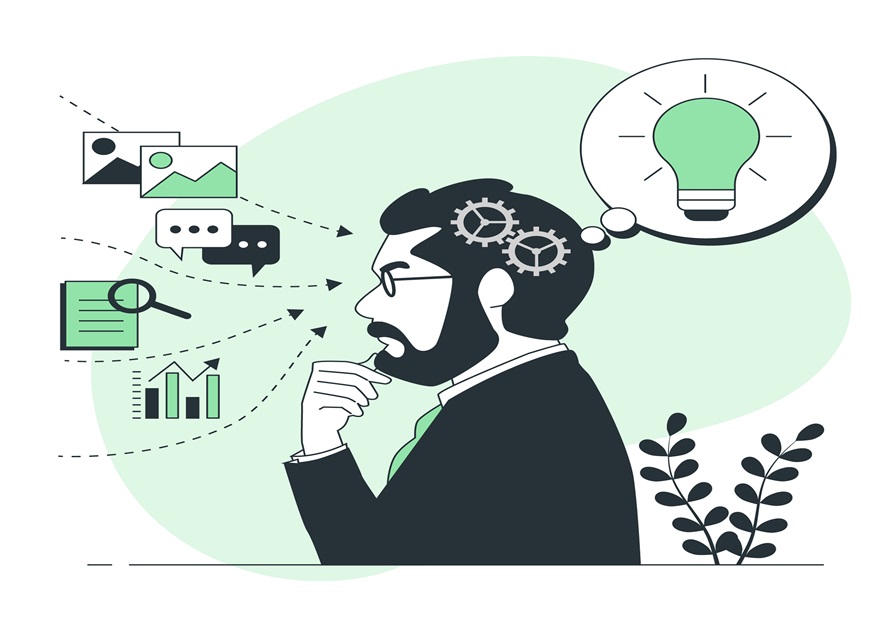Open your inbox at any time and having a few dozen unread emails is almost certain. Receiving 121 emails per day is considered average. Many of these will go unread. And yet, marketing gurus consider email marketing to be one of the best ways to connect with customers. Studies show that on average, every $1 spent on a good email marketing strategy delivers a return of $36.
Done right, email marketing can increase brand awareness, drive engagement, nurture leads, increase conversions, boost brand loyalty and much more. So, how do you create a winning email marketing strategy? Here are a few key steps.
💡 Are you looking for Coworking space in Gurgaon, Noida or Delhi? We are just a call away.
Call Now: 08999 828282
10 Key Strategies to Create a Winning Email Marketing Strategy
- Define Your Goal
- Build Your Mailing List
- Prioritizing Quality Over Quantity
- Segment the Audience
- Design Your Email
- Personalize Content
- Add a Clear Call-To-Action (CTA)
- Choose an Email Marketing Platform
- Schedule Emails
- Monitor and Optimize
1. Define Your Goal
Deciding what you want to achieve is the first step to planning your email marketing strategy. An email intended to increase website traffic is very different from one aimed at increasing sales of a particular product.
When you’re setting goals, it isn’t enough to simply say ‘I want to increase sales’. You need SMART goals. These are specific, measurable, achievable, relevant, and time-bound. For example:
- Generate 100 leads in 3 months
- Convert 500 orders in 1 month
- Increase open rates by 10% in 6 months
Setting SMART goals gives you a direction to follow and makes your efforts easier to track and analyze. In turn, this supports data-driven decisions for the future and keeps the team motivated.

2. Build Your Mailing List
Next, you need a list of email addresses. You can build a mailing list by collecting emails through opt-in forms on your website. Giving away free eBooks and exclusive content in exchange for an email address is another popular strategy. Or you could run contests that leads can enter by sharing their email addresses. You can also collect email addresses from interested prospects at trade shows and networking events.
As far as possible, do not buy a mailing list. Emailing leads who have not signed up as subscribers can do more harm than good. Emails sent to invalid addresses will bounce back. A bounce rate higher than 2% is cause for concern. Unsubscribed recipients may also report your emails as spam. This can lower your sender reputation. Worse, servers may blacklist you.
3. Prioritizing Quality Over Quantity
To ensure a high-quality mailing list, verify each email address on your mailing list. This doesn’t require manual effort. You can integrate automated email verification tools at the data collection points. This ensures every email address entering your database exists and is deliverable. Running regular batch validation checks on your existing mailing list can help weed out inactive accounts.
In addition, monitor your campaign engagement metrics such as open rates and unsubscribe rates. Let’s say a lead/ customer has not interacted with an email for a few months. You can run targeted re-engagement campaigns or remove them from your mailing list.
Also Read: How SMBs Can Build Email Security Awareness?
4. Segment the Audience
An opt-in mailing list ensures that everyone on your mailing list wants to hear from you. But, they’re not necessarily interested in the same things. Let’s say you run a travel agency. A 22-year-old may want to know more about weekend getaways while a 60-year-old retiree may want to plan a month-long holiday. Segmenting your audience helps you fine-tune your approach. This helps design campaigns relevant to your audience.
You can begin with basic demographic filters like age, gender, and location. Other helpful filters include behavioral filters, customer lifecycle stages, and interests. Some of the most common filters used are:
- Behavioral filters
- Website activity
- Email open rates
- Purchase history
- Customer lifecycle stages
- New subscribers
- Active customers
- Lapsed customers
- Interests
- Product category
- Survey responses
5. Design Your Email
On average, people spend just 9 seconds looking at an email. Hence, your emails must be easy to read and stand out with eye-catching visuals. The copy must create an emotional connection with the reader without sounding like a pitch. A conversational tone is ideal.
For example, instead of saying ‘Shop Now’, you could say ‘Your Dream Skirt is 1 click away’.
Incorporating gamification elements like surveys and quizzes can make your emails more interactive. This engages the reader. Further, offering a discount or reward in exchange for participation can increase conversion rates.
Avoid words that can trigger spam filters. Words and phrases like ‘Free’, ‘Urgent’, or ‘You’ve won’ can direct your emails to spam folders. They also make your brand look less credible.
6. Personalize Content
People are more likely to engage with your email when it is relevant to their needs. Hence, personalize every campaign. The level of personalization possible depends heavily on how you segment mailing lists.
Netflix is considered a leader in personalized email marketing strategies. “Finish what you started” emails are personalized based on just what a customer has watched but even the completion level for a series.
Personalizing an email makes the recipient feel special. It goes a long way to strengthening customer relationships and building brand loyalty. Here are a few things you can do:
- Create relevant subject lines. You may use the recipient’s name here.
- Address the customer by name in the email body
- Use dynamic content to match different interests
- Integrate product recommendations based on past website interactions and orders
- Send special offers on birthdays and anniversaries
- Personalize the sender’s information
7. Add a Clear Call-To-Action (CTA)
Every email must have a clear call-to-action button. This tells the reader what to do next. It may direct them to sign up for a service, buy a product, schedule consultations, etc. Short action verbs that create a sense of urgency are ideal for CTAs. For example, ‘Sign Up for 50% Off’, ‘Shop Now’ or ‘Get Yours Now’.
Though the CTA button is usually at the bottom of the email, it must be easy to spot. Using contrasting colors is a good idea.
8. Choose an Email Marketing Platform
Rather than manage your mailing lists with Excel sheets, pick an email marketing platform to run your campaigns. Not only is it more efficient, but you can also leverage automation capabilities to trigger automated email sequences.
Mailchimp and HubSpot are some of the most commonly used email marketing platforms. There are many other platforms worth considering too. Many offer free trials to make your selection easier. Some of the features to consider when choosing an email marketing platform are:
- Availability of email templates
- Automation capabilities
- A/B testing
- Ease of personalization
- How well it integrates with other software
💡 SMBs looking for HR, Marketing, Technology and Funding solutions for their business.
Call Hello Jarvis 994 8000 800
9. Schedule Emails
If you send an email on a Saturday afternoon, chances are it won’t be seen till Monday morning. By then it may be buried deep in your inbox. Hence, you need to schedule your emails to go out at the right time. The best time to send emails is usually between 8 and 11 am and 4 and 6 pm.
Customer actions may also trigger certain emails. For example, you can send welcome emails as soon as a customer creates an account. You can send reminder emails 1 day after the cart has been abandoned.
Milestone emails with special offers for birthdays and anniversaries should be sent a week before the date. Similarly, seasonal emails should go out about 3 weeks before the event.
10. Monitor and Optimize
A winning email marketing strategy is one that is constantly updated. While the flow of your emails should be consistent, strive to make every email better than the previous one.
After every campaign, look into the campaign analytics to understand what’s working and what isn’t. For example, a low open rate could mean that you need to rethink the subject lines. A/B testing is another way to understand subscriber reactions and improve email campaigns. Don’t shy away from asking subscribers for feedback.
There’s no denying it – email marketing has a lot of potential. With smart copy, a clean, segmented mailing list, and personalized content, you too can build strong customer relationships and increase revenue.
From time to time, you may feel the need to work with a graphic designer or a copywriter to customize your email templates. Rather than worrying about finding someone who can commute to your office, you can book a desk at a coworking space.
The Office Pass (TOP) has coworking spaces in Delhi, Noida and Gurgaon. You can reserve space for a day, a week, or even a month. Nothing should stand in the way of sending out regular email campaigns.









